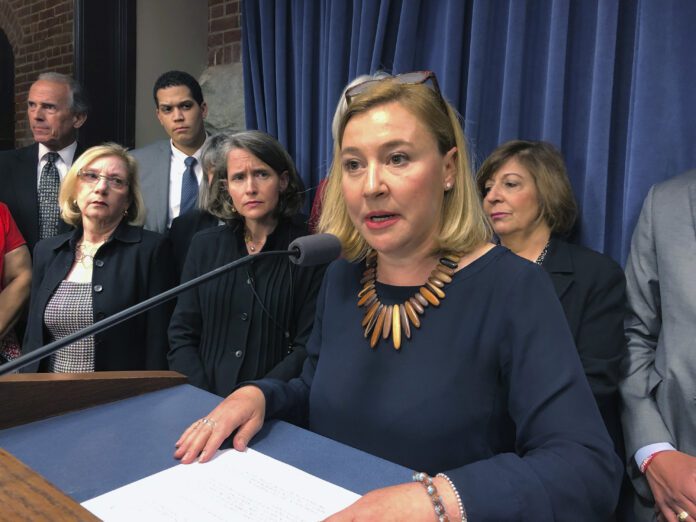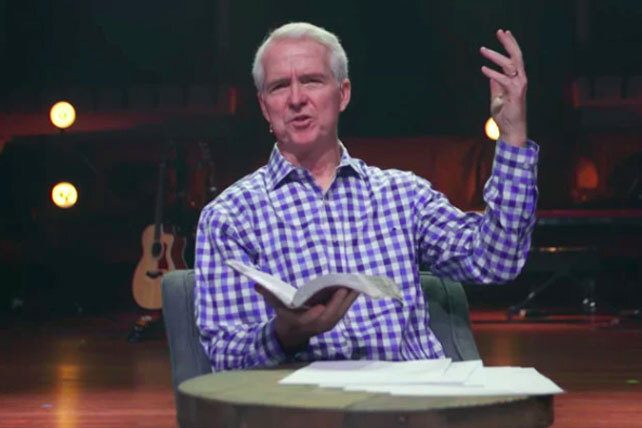Outreach is an important part of fulfilling the Great Commission and necessary for growth. You may already have a top-notch outreach strategy that includes time-tested methods like direct mail, invitation tools and word of mouth, but there’s a chance you’re leaving something out. Do you have a plan for digital outreach?
You definitely need one: We live in an increasingly digital world, which means digital outreach belongs as part of a holistic outreach strategy. If your church doesn’t include digital outreach as part of your overall strategy, you’re overlooking an important way to connect with your community.
Digital outreach means simply using the digital tools available to you to reach your community for Christ. You can start by creating a thoughtful plan that includes the use of digital platforms as part of your outreach efforts.
A basic digital outreach strategy starts with these three components:
1. A great church website
2. Active social media profiles
3. An organized email list
3 Steps to a Digital Outreach Strategy
1. Have A Great Church Website
Are you missing out on attracting new visitors and engaging regular attendees because you don’t have a church website? In today’s digital culture, a good online presence is a vital part of ministry.
The Internet is the number one tool people use to search for information they need. If someone is searching for a church in their neighborhood, they’re probably looking online first. If you don’t have a website for them to find, you’ll potentially lose out on a new member.
Since you only have one chance to make a good first impression on someone, make sure your website is representing your church well. Think of it this way: A well-designed website that is easy to navigate serves as a digital front porch for your church. People will feel welcomed and invited in when they see you’ve put effort into creating a website that answers their questions about your church.
If you’re not sure where to begin, make sure your website has these basics on the homepage:
• Church contact info (phone and email)
• Church address
• Service times
It’s a great idea to have a “New Here” tab visitors can click on to learn everything they need to know about visiting your church for the first time. You can even include access to previous sermons so they can get a feel for your pastor’s teaching style.
As you edit and polish your website, it helps to put yourself in the shoes of potential new visitors, especially those who may not be familiar with church. Is the content on your website presenting a simple, clear picture of what they can expect from your church? If not, test and tweak different ideas to make your site visitor friendly. You can even ask for feedback when you meet new visitors at your church!
2. Be ACTIVE On Social Media
Social media is where community happens online — your church needs to be on social media if you want to reach people where they are. Platforms like Facebook, Instagram and Twitter are excellent tools for creating awareness around your church and engaging with your community.
Social media gives your church a chance to share the Gospel in the digital world. Sharing your story through content, photos and events keeps your church in front of your followers. Every post is a connection to your audience that reinforces your message. Every time someone shares your post, the message spreads even further, which means your church has a greater chance of being found by those who are seeking answers about faith, the Bible and God.
If choosing social media platforms feels overwhelming, start with Facebook. Chances are almost every person, business or ministry you know has a presence on Facebook. Don’t be left out! Setting up a Facebook page for your church is pretty straightforward, and generally easy to manage once you get the hang of it.
Here are a few tips for getting started on Facebook:
• Create a public page for your church with your physical address, service times, contact info and website.
• Upload a high-resolution cover photo that is relevant to your church. Use your church logo as your profile picture.
• Invite your members to “like” your new page and encourage them to share it in their individual networks.
• Follow other pages (think community nonprofits and other local organizations). Those pages will often follow you back, which grows your network even more.
• Once your page is set up, start posting daily. If you don’t have time to curate and share daily content, an automatic daily posting service like Social Reach Daily is a great option.
• What to post? Facebook loves inspiring, shareable content — especially video and photos!
• Show what makes your church special. You can include photos and updates about different events and ministries so online visitors get a sense of who you are.
Facebook is a solid place to launch, but consider this: Instagram is becoming increasingly popular with churches. Younger demographics are especially present here, so if you want to draw in Millennials and Generation Z, think about getting started on Instagram.
3. Organize Your Email List
How do you communicate with your church family? Email is a wonderful tool to keep up with regular attendees in a unified way or deliver relevant information to targeted groups within your church. It’s also a fantastic option for following up with new visitors.
Your church may already be using a popular email platform like Outlook or Gmail. These are great options, but if you want to polish your approach to email, consider using a free email-marketing platform (MailChimp or Sendinblueare good choices).
These platforms allow you to send sophisticated, visually appealing mass emails that keep your church in the loop. You’re also able to track data — you can see who has opened your emails, what time they opened them, if they opened them on a mobile device, etc.
This helps you refine your approach to email so that you can be sure to deliver relevant content to different segments of your church. It’s easy for visitors and new members to sign up for your email list through “subscribe” buttons you can embed on your website. Email services like these can also help you stay in compliance with spam laws and other email regulations.
No matter the email system you use, it helps to go through your email list and remove names and emails of people that are no longer connected to your church. You can also create email segments of specific ministries in your church (think women’s ministry or volunteers) so that you can send them content tailored to their interests and activities.
Here are a few ideas on how you can use email to reach out to your church and community:
• Use your connection cards to gather visitors’ email addresses, and then have a follow-up sequence tailored to them. This email sequence can thank them for their visit and suggest ways they can further connect with your church.
• Send out a monthly newsletter to update everyone about what’s going on at your church. You can include reminders about upcoming events and links for them to register.
• Do you have a prayer team? Use an email list to remind your congregation to be praying for the needs of your church.
When it comes to social media, ever-changing algorithms mean there’s never a guarantee all of your followers will see your messages. That’s why email is a great addition to your outreach strategy — though you can’t be sure that people will open your emails, you’ll at least know your message arrived in their inbox.
Your digital outreach strategy can grow and change with your church. Get started with these three basics and let them serve as stepping-stones to help you toward a fully integrated outreach strategy. By pairing your digital efforts with traditional outreach, you’ll have even more opportunities to reach people in your community for Christ.

















